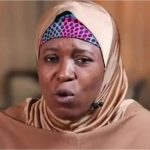The Kano State Shura Council has resolved to summon both the petitioners and popular Islamic scholar, Sheikh Lawan Triumph, for questioning over allegations of blasphemy levelled against him.
The Secretary of the Council, Shehu Wada Sagagi, disclosed this while briefing newsmen on Friday in Kano after the council’s meeting.
He explained that the committee, chaired by Wadiyan Colonel, decided that all parties involved would be invited to present their claims and defend themselves.
The controversy surrounding Sheikh Triumph began when a group of petitioners accused him of making statements deemed offensive to Prophet Muhammad (peace be upon him).
The allegations include claims that the Prophet had lice on his head, urinated while standing, that there was nothing miraculous about his birth, and that his parents were in hellfire.
The case has generated widespread attention and stirred public debate, raising concerns about potential unrest in the state.
In response, the state government referred the matter to the Shura Council, a body of respected Islamic scholars tasked with examining religious issues and providing guidance in accordance with Islamic jurisprudence.
According to Sagagi, the council’s involvement is aimed at ensuring a measured and law-abiding resolution.
He urged the public to maintain peace and harmony, stressing the importance of stability for Kano’s social and economic progress.
“The committee will examine the claims thoroughly and advise the government based on Islamic law,” Sagagi said, adding that both the cleric and the petitioners would be given equal opportunity to present their cases.
Kano Times recalls that Sheikh Abduljabbar Nasiru Kabara was arrested at his home in Kano and arraigned on July 16, 2021, before an Upper Sharia Court at Kofar Kudu, situated at the Emir’s palace.
He was accused of blasphemy against Prophet Muhammad (SAW) and was later sentenced to death by hanging by the same court on December 15, 2022, after being found guilty. The case was being appealed in 2024.
Blasphemy is regarded as a sensitive issue in northern Nigeria, where Islamic law operates alongside common law. It can attract the death penalty in a dozen predominantly Muslim states.






